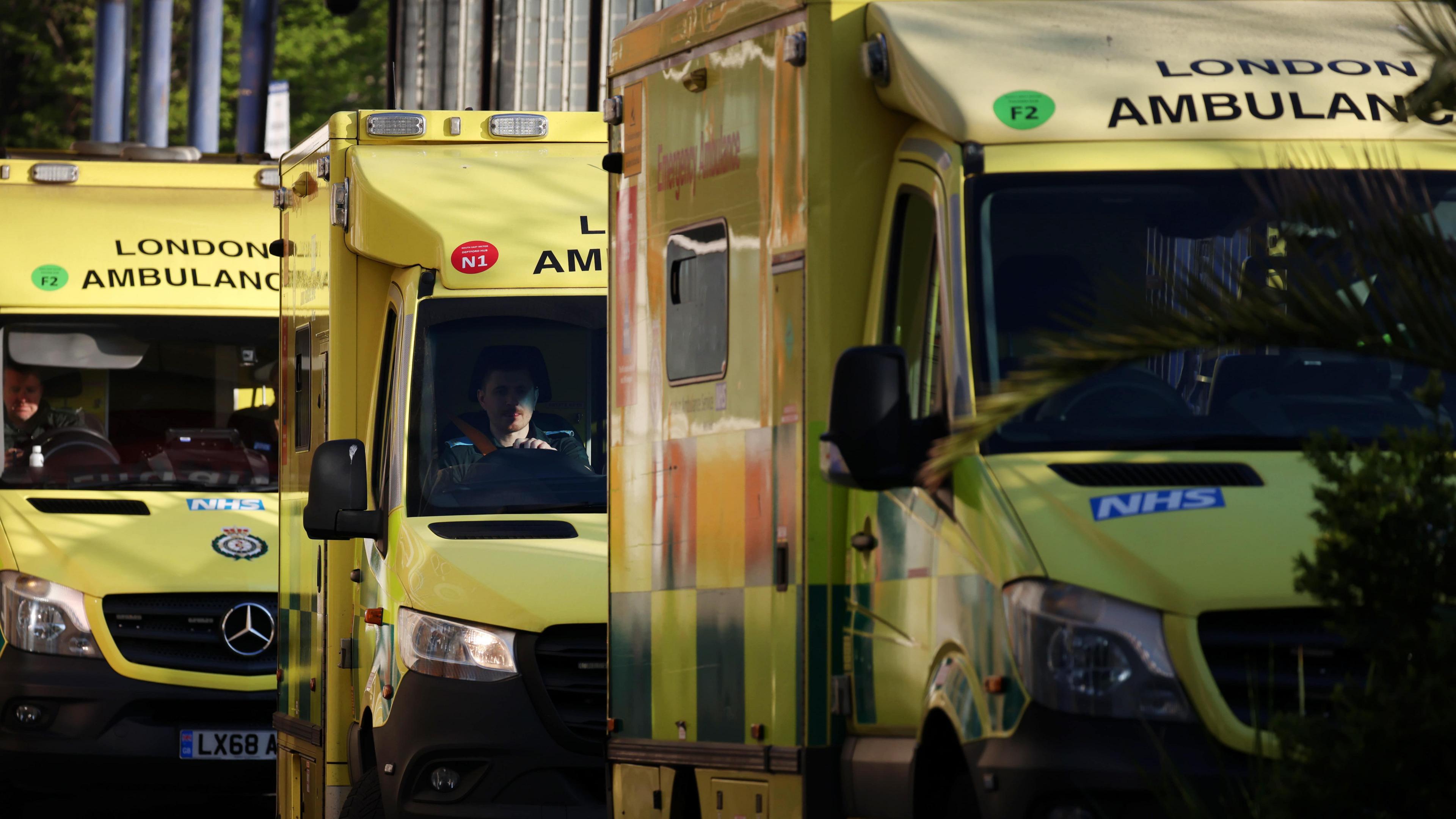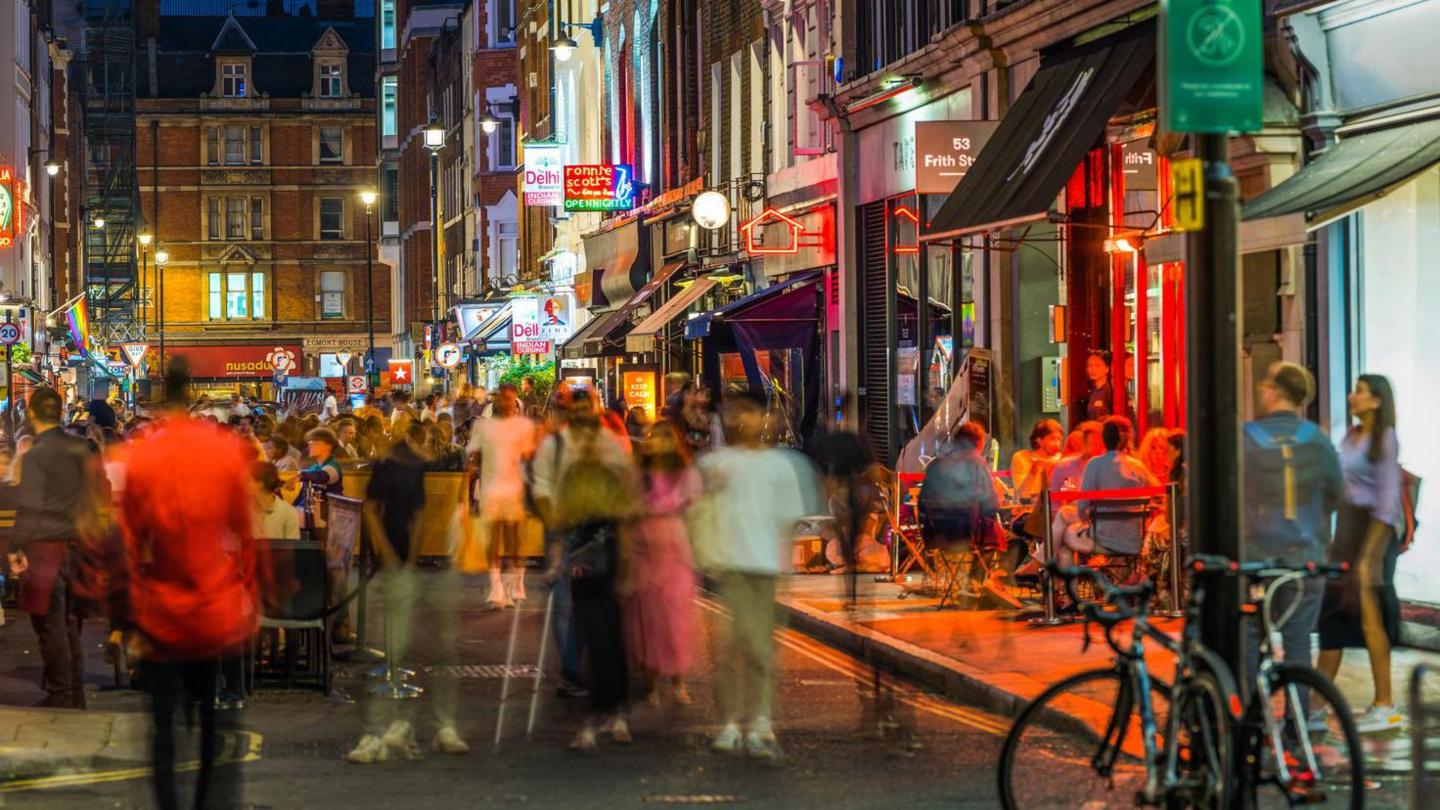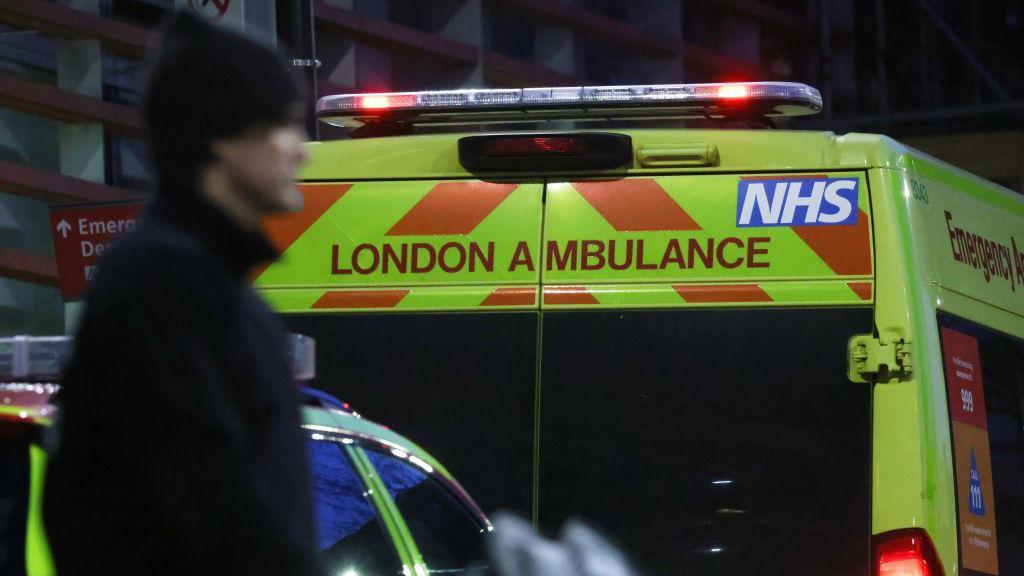London Ambulance Service cuts 999 response times

The service reached category two patients eight minutes faster in July 2025 compared to July 2024
- Published
The London Ambulance Service (LAS) has cut its average response time for urgent treatment and is reaching people faster than last year, according to new NHS England data, external.
The emergency service reached category two patients eight minutes faster and category one patients approximately 30 seconds faster in July 2025 than it did in July 2024.
Category two calls include emergencies such as strokes, difficulty breathing and chest pains. Category one calls are life-threatening situations, such as cardiac arrest.
Jason Killens, chief executive at LAS, said the figures were a testament to the hard work of the organisation's operational staff.
'Challenging backdrop'
The improved response times come despite the LAS facing some of its busiest weeks this summer.
Call handlers received 191,797 999 calls in July 2025, about 12,200 more than the same time period last year, in part due to the hot weather.
This represents approximately 400 more calls a day and an increase in nearly 7% of 999 call volumes, LAS said.
The service has a target to reach category one calls in under seven minutes.
In July 2024, its average response time to those calls was seven minutes and 25 seconds. Last month, it was six minutes and 56 seconds.
"Our people have really focused on getting to our sickest patients even faster despite the challenging backdrop of further demand on the NHS," Mr Killens said.
"I recognise that there is more work to do, but these promising response times for patients show that our work to treat more patients over phone, improve our processes, and working closely with our NHS partners in the capital is paying off."
The response time improvement came after the service changed the way staff gather equipment, leading to faster dispatch times, according to LAS.
Paramedics have also been working with hospitals to hand patients over quicker, in order to get back on the road for call-outs.
Mr Killens added that clinicians were also focussing on directing patients to the most appropriate care through a phone assessment, to avoid people going to busy hospitals when visits are not necessary.
In July, 27,500 Londoners were treated over the phone by LAS clinicians to avoid attending hospital, compared to 22,700 during the same period last year.
Listen to the best of BBC Radio London on Sounds and follow BBC London on Facebook, external, X, external and Instagram, external. Send your story ideas to hello.bbclondon@bbc.co.uk, external
Related topics
- Published9 July

- Published10 January
